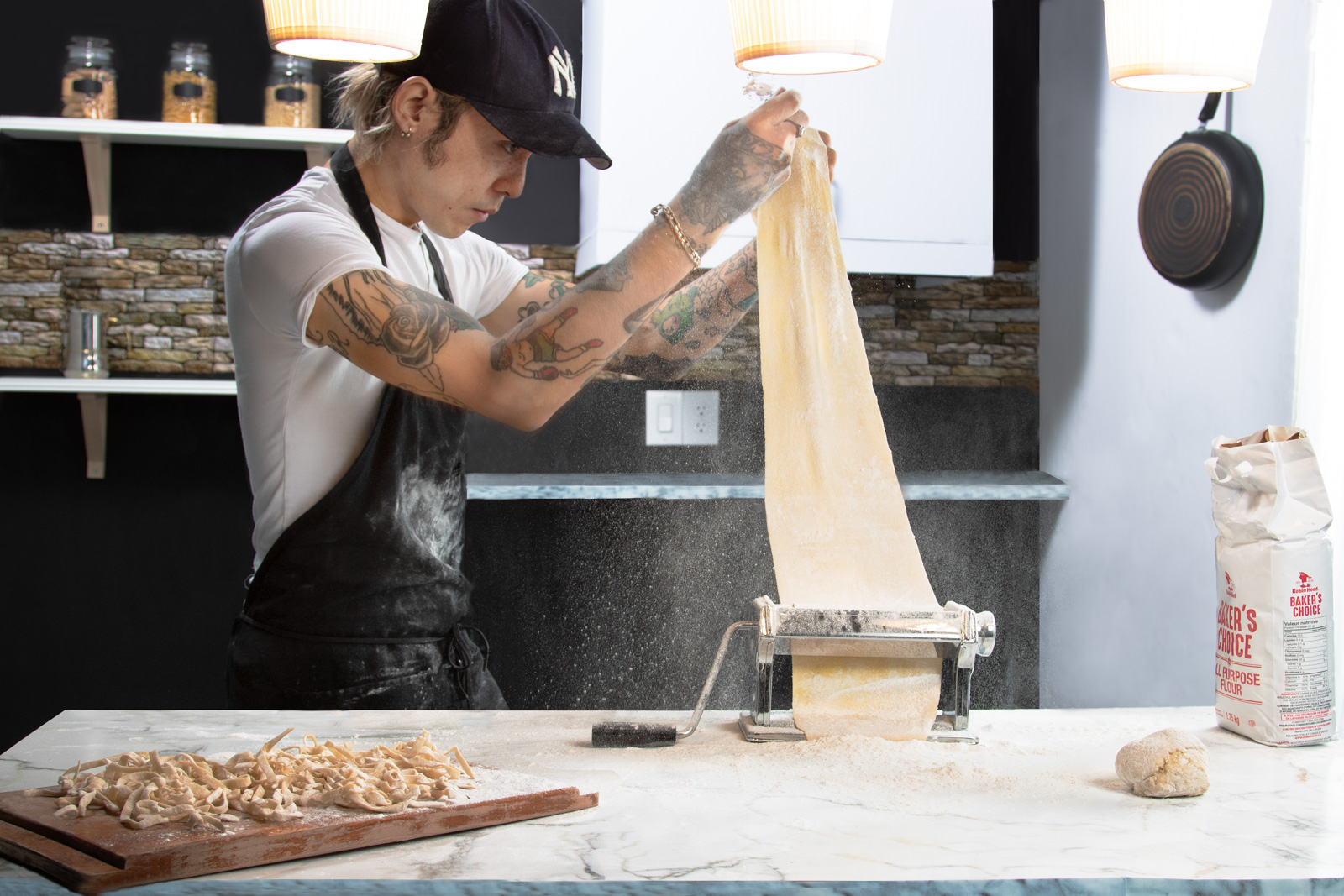One restaurant owner triumphs over the pandemic
Quebec’s second lockdown, which began in October, has been a devastating blow to business owners all over the province. According to the Centers for Disease Control and Prevention, “Public health actions, such as social distancing, can make people feel isolated and lonely and can increase stress and anxiety.”
Due to COVID-19 restrictions, restaurant owners have only been allowed to open for takeout. As much as it’s been a financial burden for many restaurant owners to be unable to offer dine-in services, it remains a question as to how restaurant owners deal with their own mental health issues — on top of keeping their businesses afloat during this global pandemic.
Dino Angelo Luciano, an accomplished chef, moved to Montreal shortly after his win on season 8 of MasterChef. Originally from California, Luciano’s journey has been quite inspiring. As a result of Luciano’s large Instagram presence, he not only uses his platform to show his cooking skills, but he also advocates for mental health awareness. In a video on his Instagram, he explained that he has struggled from a young age with OCD, paired with anxiety and depression.
In a Zoom interview, Luciano explained that he remembers dealing with OCD from a very young age.
“I think I remember being around seven years old, that’s when I was the most conscious of what I was doing, who was around me, where I was living. The first thing I was doing was turning off the waterspout in the bathtub. I would do it over and over again, flick it on and off. I don’t know why I did it, I think it made me feel good. I think my parents always thought I was just messing around.”
Luciano’s mental health struggles followed him during the taping of MasterChef. “I had my little ticks here and there, like let’s say I had to cut something twice, like if I had to cut an onion at a certain angle. When you are cutting an onion, you’re dicing it up and you maybe get nine to 14 slices. Maybe I had a certain number in my mind, and I would cut the onion x number of slices,” Luciano explained.
After his move to Montreal, Luciano recounted that he always dreamed of opening a restaurant.
“I believe in manifestation, fate is written. I think we have the ability to control destiny and certain things happen at certain times. I came up here three years ago, October 2017. I met a lot of people, maybe not the right people at the time. They helped me build my knowledge on the culture of Montreal. As much as I wanted to open up something a long time ago, I don’t think I was mentally ready for it.”
He put his focus into his cannoli business instead, called ‘The Fat Cannoli.’ His business had done pretty well at the time however, he left this business behind and focused on his dream of opening the restaurant.
During the second lockdown in Montreal, Luciano explained that he wasn’t worried about the state of his future business.
“I could care less about my own stress at this point, the stress of opening a restaurant, ‘it might fail, we might hemorrhage money, we might not, we might fail.’ Actually, we’re doing pretty well at the moment. But even if we weren’t, the joy of making people happy with food was satisfying enough for me. I know during the first wave, I was going crazy, and I think one of the only things that was making me happy was ordering a lot of take out,” Luciano recalled. He explained that if he can offer the same joy to others, it would make everything well worth it.
No one human is perfect and everyone has their dark moments. However, who does Luciano turn to when things get tough?
“I don’t really talk about the dark thoughts too much, sometimes it manifests into my moods and makes me very grouchy and moody. My girlfriend mainly has to deal with that and she’s my number one supporter.” Luciano said that when his mind goes to the dark place, his girlfriend is able to bring him back.
“I have a secret that got me through this pandemic. You’re forced to be alone and a lot of people are watching Netflix… pay attention to those actors in those movies. When you’re forced to be away from everybody, you kinda get to develop who you want to be … By the time you go out again you can surprise people with who you have become.” Luciano says that the pandemic has been a time for self-growth and reflection, and believes that if people don’t take this as an opportunity to learn more about themselves, another opportunity will be less likely to present itself in the near future.
Feature photo by Dalia Nardolillo
